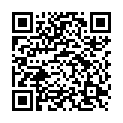|
|
|
| Module code: MEB_24_A_1.07.ENB |
|
|
1V+3P (4 hours per week) |
|
6 |
| Semester: 1 |
| Mandatory course: yes |
Language of instruction:
English |
Required academic prerequisites (ASPO):
presentation |
Assessment:
project work (grade)
[updated 15.01.2024]
|
MEB_24_A_1.07.ENB (P241-0455, P241-0456) Mechanical Engineering, Bachelor, SO 01.10.2024
, semester 1, mandatory course
|
60 class hours (= 45 clock hours) over a 15-week period.
The total student study time is 180 hours (equivalent to 6 ECTS credits).
There are therefore 135 hours available for class preparation and follow-up work and exam preparation.
|
Recommended prerequisites (modules):
None.
|
Recommended as prerequisite for:
|
Module coordinator:
Prof. Dr. Matthias Faust |
Lecturer:
Prof. Dr. Matthias Faust
B.Eng. Sebastian Georg
Professor/innen des Studiengangs
[updated 28.01.2026]
|
Learning outcomes:
Part Engineering Basics:
Students will be familiar with the curriculum and will be able to explain its structure and contribution to mechanical/process engineering education.
Students will be aware of the interdisciplinary connections between the individual courses in the study program (modules).
They will receive initial insight into practical engineering activities.
They will be able to integrate themselves into a group, organize projects and develop independent working methods.
Students will be able to approach simple technical problems, solve them, and reach a conclusion.
Students will be able to give a short presentation in front of an audience.
Part Intercultural Management:
Students will define and explain concepts and terms such as culture, stereotypes and perception of others.
Students will describe cultural differences in working life.
Students will explain and critically reflect on various models of cultural comparison.
Explain intercultural competence models and apply and transfer them to various professional activities and environments.
Students will be familiar with standard engineering work methodology.
Students will improve their subject-related technical English skills. Students will know the subject-specific English terms.
[updated 28.02.2025]
|
Module content:
Part Engineering Basics:
Informative, introductory lectures:
-“Introduction to mechanical engineering" lecture (90 - 120 minutes)
-“Introduction to process engineering" lecture (90 - 120 minutes)
-"Engineering activities in professional mechanical engineering practice" company lectures (90 - 120 minutes)
-"Engineering activities in professional process engineering practice" company lectures (90 - 120 minutes)
-Several short presentations (45 - 90 minutes) from faculty members outlining the content and importance of the subject/modules represented in the degree program for the students engineering education.
-If possible, further presentations.
-Project work / team work.
Part Intercultural Management:
Apply different cultural models and definitions
Recognize different levels of communication and their associated special features in an intercultural context (gestures, facial expressions, proxemics).
Perception of others, stereotypes and prejudices
At least two different models of cultural comparison in contrast (e.g. Hofstede, Lewis, Thomas, GLOBE)
[updated 22.01.2026]
|
Teaching methods/Media:
In small groups, students will work on projects described in a "guideline" by means of simple tasks that demonstrate the range of mechanical engineering/process engineering content and typical activities carried out in the fields. The projects promote creativity and analytical skills. They are designed to allow students to experience how much fun these activities are and the how rewarding it is to achieve results. With simple structures, built/developed by themselves, they will analyze engineering-relevant topics and thus, create connections to the curriculum’s content. Students will be encouraged to actively seek any other knowledge they require from other teaching staff members at the htw saar. The projects will be accompanied and supervised by teachers who, as a point of reference, can also provide mentoring.
[updated 15.01.2024]
|
Recommended or required reading:
[still undocumented]
|

